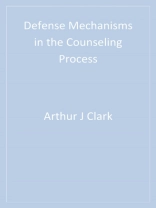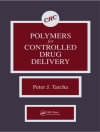What causes clients in therapy to resist change? What mechanisms and devices do they use to defend against therapeutic progress? How can a therapist identify and work with such defenses in their clients? Understanding defense mechanisms is essential to understanding clients, managing resistance, clarifying conflicted behavior, and engendering more adaptive functioning. In Defense Mechanisms in the Counseling Process, author Arthur J. Clark discusses various specific defense mechanisms that arise in the course of working with a client in counseling. He presents each mechanismÆs theoretical origins, psychopathology, and definitionsùand then the methods (organized according to the three-stage model of the counseling process) for ‘processing’ it through discrete stages. Extensive examples throughout the book from diverse populations illustrate the defense mechanisms themselves, as well as the therapeutic change that can result in spite of them. He also provides an integrative case example, demonstrating the changes in clientsÆ defenses through the counseling process. Combining a theoretical and practical perspective, Defense Mechanisms in the Counseling Process is ideally suited for professionals and academics in clinical and counseling psychology, psychology, social work and group work.
Arthur J. (St. Lawrence University, Canton, New York) Clark
Defense Mechanisms in the Counseling Process [PDF ebook]
Defense Mechanisms in the Counseling Process [PDF ebook]
Buy this ebook and get 1 more FREE!
Language English ● Format PDF ● ISBN 9781452221373 ● Publisher SAGE Publications US ● Published 1998 ● Downloadable 6 times ● Currency EUR ● ID 5351208 ● Copy protection Adobe DRM
Requires a DRM capable ebook reader












